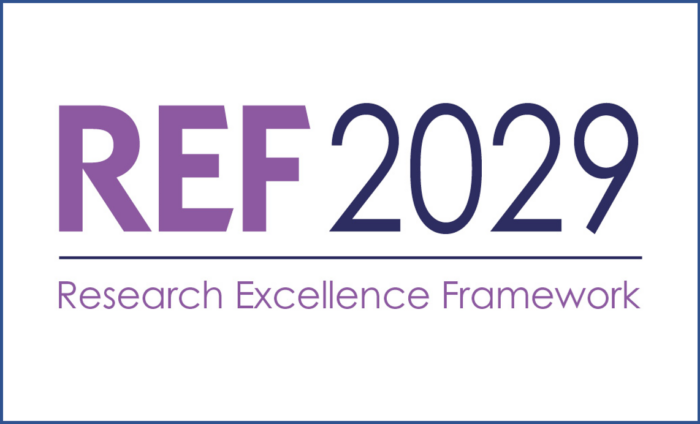We are pleased to announce the publication of the EPC’s joint study with UCL’s Centre for Engineering Education on the experiences and perceptions of European (EU) engineering students and academic staff in UK universities.
The findings of Brexit impact on UK’s engineering education sector: Exploring EU students and staff experiences shine a spotlight on the importance of the long history of collaboration and shared purpose with the UK’s direct geographical neighbours to advancing excellence in engineering and engineering research. The research demonstrates that the readiest and most promising opportunities are in preserving and strengthening existing relationships, exploiting geographical proximity, to further research collaborations.
Drawing on surveys, interviews and data analysis, the independent research was conducted to support an evidence-based approach to the recruitment and retention of European talent into UK engineering education, research and practice through understanding the concerns and expectations of European students and academic staff.
The views expressed within were made at a particular point in time before the EU and UK negotiators reached an agreement on 24 December 2020. The interviews were conducted before the General Election in December 2019 and due to covid-19, the surveys were delayed to June 2020.
Financial barriers threaten the future of engineering EU student recruitment
While a UK engineering education is still attractive to a majority of EU students, at different levels of study, interview and survey data support the idea that EU undergraduate students who started degrees after June 2016 were taking the opportunity to study engineering in the UK as a ‘last chance’ before changes to fees, funding and visa requirements. Being eligible for home fee status and financial support from the UK’s Student Finance were among the most important factors when making the decision to study engineering in the UK.
Of our survey sample, only one in five students – including 8% of undergraduates, 23.8% of Integrated Masters, 16.7% of postgraduates and 28.6% PhDs – would have applied to a UK university today if they were not eligible for a student loan or full scholarship. According to these findings, the announced changes in tuition fees, access to student finance and visa requirements for courses starting in academic year 2021/22 might be expected to have a severe impact on the recruitment of EU engineering students.
EU academics forewarn an engineering “brain drain”
Brexit consequences for EU engineering academic staff are far-reaching. Academics reported that four years of uncertainty around a UK-EU deal has already negatively impacted collaboration with European partners and access to funding: since the Brexit referendum outcome, there are cases where UK partners were excluded from EU-funded research proposals with well-established and new EU partners. Moreover, Brexit has exacerbated EU nationals’ perceptions of not feeling welcome in the UK.
Whereas EU engineering academics agree that the UK’s universities provide the resources and opportunities for career progression and research leadership, only one third of survey respondents would have come to the UK if they had had to make that decision today. Freedom of movement, access to research funding and being afforded equal rights with British citizens will be key to informing their decision to remain in the UK – or to leave – in the near future.
Discouraged by research funding difficulties and worried by uncertainties in securing their rights to live and work in the UK, EU engineering academics said they may consider leaving the UK to seek jobs on the Continent, mainly in their home countries or in Switzerland, Germany and France, as they believe “all the engineering opportunities are in the EU”. As shown in an analysis of HESA data, this “brain-drain”, as one EU academic put it, could be particularly damaging for engineering research: one in four research-only engineering academics is European, of which 75% are on fixed-term contracts.
A fractured pipeline for the UK engineering workforce
One third of EU academics surveyed came to the UK initially to study as undergraduate and/or postgraduate engineering students before becoming academics. Many EU students plan to stay in the UK after graduation to work as engineers. However, changes to study conditions and the UK’s points-based immigration system are seen as heavy barriers to EU nationals. They are likely to have a negative impact not only on student and academic staff recruitment, but also on the UK’s engineering research and innovation base, and on its much-needed, diverse and talented workforce.
Given a historical reliance on European engineers in the UK workforce, the skills pipeline might be compromised if they no longer regarded the UK as an attractive place for prospective and existing graduates and for academics to pursue their future career plans.
Recommendations
The findings shine a spotlight on the importance of the long history of collaboration and shared purpose with the UK’s direct geographical neighbours to advancing excellence in engineering and engineering research.
While the opportunities to develop new partnerships with countries outside the European Union are desirable and welcome, it would be inadvisable to develop these at the expense of well-established relationships within closer reach of the UK. The research demonstrates that the readiest and most promising opportunities are in preserving and strengthening existing relationships, exploiting geographical proximity, to further research collaborations.
“[Since Brexit] it feels it will become more difficult to get grant applications to work with our direct geographical neighbours. We’re looking at a lot of partnerships with India at the moment, with Mexico. This is really good but traveling to India and Mexico is by far more difficult than interacting with people from Europe. (…) It makes these kinds of collaborations very difficult, actually. Because at the end of the day, it’s all about people and unless you interact in person, at least every once in a while, with researchers, things just don’t happen. It makes things much more difficult”.
To reinforce its leading role in engineering innovation, the UK’s new strategy should promote inclusive and mutual agreements in granting access and funds to research collaborations with European partners; support student and staff interchange between the UK and the EU; and facilitate purchase and distribution of specialised equipment and technology.
The post-Brexit agreement to secure participation, and access to funds, by UK-based researchers in Horizon Europe is beneficial. Further reassurance needs to be signaled by the UK Government to support the re-establishment of UK researchers’ leading role in European projects.
Rather than replacing Erasmus+, the new Turing scheme should expand on the UK’s participation by enabling engagement in European student exchange. This should be a springboard to wider international engagement in Europe and globally.
Barriers to EU engineering students and academic staff to study and work in the UK have a negative impact on the diversity of experiences and learning opportunities of UK nationals studying in UK universities. UK’s universities are among the most international universities in the world. Being part of a diverse and welcoming university environment was regarded as one of the most important reasons to study, teach and research engineering in the UK in this study and many other surveys. Without promoting this diversity, UK students will also lose important opportunities to engage with different ways of teaching, learning and research in engineering.
(…) we do have a lot of students here in universities who are coming from mainland Europe. We need that influx and the influence of people coming in with slightly different backgrounds and ideas to strengthen the courses here by adding that aspect of variety. As we’re making sure that we do keep those opportunities would be very beneficial. (…) having to limit that in just the UK might reduce our impact and ability to push the boundaries of research”.
Notes to editors:
- “Brexit impact on UK’s engineering education sector: Exploring EU students and staff experiences” is a Royal Academy of Engineering funded project by UCL Centre for Engineering Education (CEE) and the Engineering Professors’ Council (EPC).
- A more detailed report can be downloaded below.




